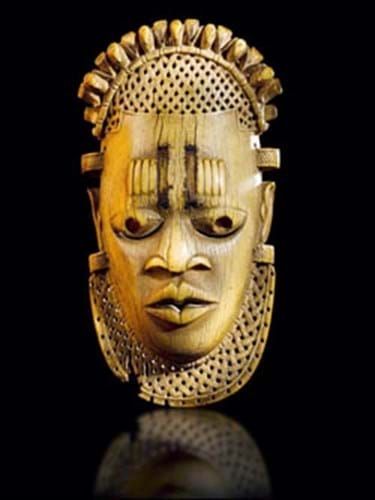
Due to appear at a specially-arranged sale in London on February 17, the mask alone was estimated at £3.5m-4.5m.
According to a brief statement released by Sotheby's, the items were withdrawn at the request of the owners who were descendants of Lieutenant Colonel Sir Henry Lionel Gallwey (1859-1949). He was a key participant in the controversial Punitive Expedition of 1897, when Benin City was plundered and much of the kingdom's art was destroyed, looted or dispersed.
Strong protests came from the Nigerian authorities following the announcement of the sale on December 20, but it is not clear whether this lay behind the decision taken four days later to withdraw the six lots.
Initial opposition to the sale emerged via an online petition organised by a group called the Nigeria Liberty Forum.
Local government officials in Nigeria then publicly condemned the sale of what they regard as looted art. Orobosa Omo-Ojo, an official in the state government of Edo, which is located in the South of Nigeria and contains the modern city of Benin, told the Nigerian press: "They [the sellers] should seek good counsel and refrain from selling the mask. Anything that makes them ignore this call from the Edo state government will make us use this as a starting point to protect our intellectual properties."
It later emerged that Nigerian President Goodluck Jonathan had taken a personal interest in the matter. An article in The Nigerian Tribune newspaper stated that the president "had been following the development and had already initiated moves to get the stolen artefacts returned to the country".
The withdrawal of the pieces is the latest chapter of controversy over items seized by the British from the Kingdom of Benin during the Punitive Expedition. As well as many other objects, around 1000 bronze plaques were taken, of which around 200 passed into the British Museum in London.
Since independence in 1960, Nigeria has repeatedly called for the return of the bronzes (the country bought around 50 from the British Museum in the 1960s but has since ended its acquisition policy).
The ivory pendant mask produced specifically for the king or Oba was a particularly emotive object. One of only four known (the others are in Western museums) it had not been seen for more than half a century and its whereabouts remained unknown until the Gallwey family contacted Sotheby's last year.
Its withdrawal from sale may lead to further questions about the whole market in Benin artefacts.




